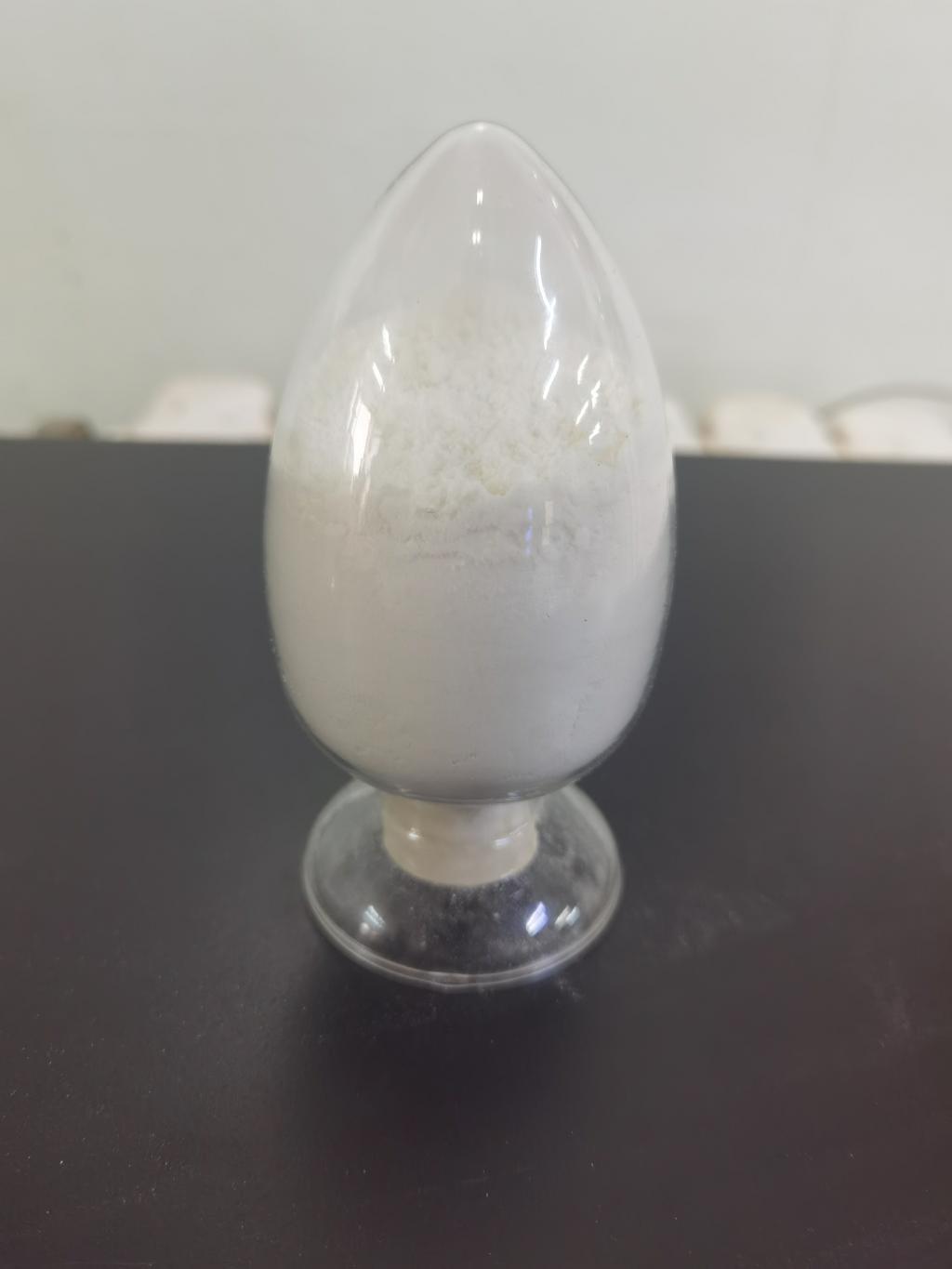Tel:+8618231198596

News
 CONTACT
CONTACT
 CONTACT
CONTACT
- Linkman:Linda Yao
- Tel: +8618231198596
- Email:linda.yao@dcpharma.cn
- Linkman:CHARLES.WANG
- Department:Overseas
- Tel: 0086 0311-85537378 0086 0311-85539701
News
Future Perspectives on the Development of ε-Polylysine Hydrochloride-Based Therapies.
TIME:2024-07-22
Understanding ε-Polylysine Hydrochloride
Chemical and Biological Properties
ε-Polylysine hydrochloride is a homopolymer of L-lysine produced by bacterial fermentation, primarily by Streptomyces albulus. It is characterized by its high solubility in water, stability under various pH levels, and resilience to heat. Initially recognized for its antimicrobial properties, ε-PLH has also demonstrated anti-inflammatory and immunomodulatory effects, making it a potential candidate for treating autoimmune disorders.
Mechanisms of Action
The primary mechanisms through which ε-PLH exerts its effects include:
Immune Modulation: ε-PLH can modulate immune responses, potentially reducing the hyperactivity of the immune system that characterizes autoimmune disorders.
Anti-inflammatory Effects: By inhibiting pro-inflammatory cytokines and promoting anti-inflammatory pathways, ε-PLH can help reduce inflammation and tissue damage.
Antioxidant Properties: ε-PLH can scavenge free radicals and reduce oxidative stress, which is often elevated in autoimmune conditions.
Current Research and Preclinical Studies
Immune Modulation in Autoimmune Models
Recent studies have explored the effects of ε-PLH in animal models of autoimmune disorders. These studies have demonstrated that ε-PLH can reduce disease severity and modulate immune responses. For example:
Rheumatoid Arthritis (RA): In RA models, ε-PLH treatment has been shown to decrease joint inflammation and destruction by modulating T-cell responses and reducing pro-inflammatory cytokine production.
Lupus: In lupus models, ε-PLH has demonstrated the ability to reduce autoantibody production and kidney damage, likely through its effects on B cells and regulatory T cells.
Multiple Sclerosis (MS): In experimental autoimmune encephalomyelitis (EAE), a model for MS, ε-PLH has been observed to reduce the infiltration of immune cells into the central nervous system, thereby decreasing inflammation and demyelination.
Anti-inflammatory and Antioxidant Effects
Beyond immune modulation, ε-PLH's anti-inflammatory and antioxidant properties have been validated in various studies. For instance, ε-PLH can inhibit the activation of NF-κB, a key transcription factor involved in inflammatory responses. Additionally, its antioxidant activity helps mitigate oxidative stress, which plays a critical role in the pathogenesis of many autoimmune disorders.
Potential Therapeutic Applications
Given its multifaceted mechanisms of action, ε-PLH holds promise for various therapeutic applications in autoimmune disorders.
Monotherapy vs. Combination Therapy
Monotherapy: ε-PLH could be used as a standalone treatment for mild to moderate autoimmune conditions. Its ability to modulate immune responses and reduce inflammation could provide symptomatic relief and slow disease progression.
Combination Therapy: ε-PLH could be combined with existing therapies, such as immunosuppressants or biologics, to enhance efficacy and reduce side effects. For example, combining ε-PLH with methotrexate, a common RA treatment, could potentially lower the required dose of methotrexate, minimizing its adverse effects.
Specific Autoimmune Conditions
Rheumatoid Arthritis (RA): ε-PLH could help manage RA by reducing joint inflammation and preventing cartilage destruction. Its immune-modulatory effects could help shift the immune balance towards a less inflammatory state.
Lupus: In lupus, ε-PLH's ability to reduce autoantibody production and protect against kidney damage could be particularly beneficial. It could be used to manage flares and maintain remission.
Multiple Sclerosis (MS): For MS, ε-PLH could reduce neuroinflammation and protect against neuronal damage. Its potential neuroprotective effects could help preserve neurological function in patients.
Delivery Mechanisms
The development of effective delivery mechanisms is crucial for maximizing the therapeutic potential of ε-PLH. Current research is exploring various approaches, including:
Oral Delivery: Formulating ε-PLH for oral delivery would provide a convenient and non-invasive treatment option. However, ensuring its stability and bioavailability in the gastrointestinal tract is a challenge.
Injectable Formulations: Injectable ε-PLH could be used for systemic treatment, providing controlled dosing and rapid onset of action.
Targeted Delivery: Developing targeted delivery systems, such as nanoparticles or liposomes, could enhance the specificity and efficacy of ε-PLH, reducing off-target effects and improving therapeutic outcomes.
Challenges and Future Directions
Safety and Tolerability
Ensuring the safety and tolerability of ε-PLH is paramount. While preclinical studies have shown promising results, comprehensive clinical trials are needed to evaluate its safety profile in humans. Potential side effects, optimal dosing, and long-term effects must be thoroughly investigated.
Regulatory Approval
Navigating the regulatory landscape is a significant hurdle for new therapies. ε-PLH must undergo rigorous testing and approval processes to ensure it meets safety and efficacy standards set by regulatory bodies such as the FDA and EMA. Collaborations with regulatory agencies during the development process can facilitate smoother approval pathways.
Personalized Medicine
The future of autoimmune therapy lies in personalized medicine, where treatments are tailored to individual patients based on their specific disease characteristics and genetic makeup. ε-PLH-based therapies could be customized to target specific immune pathways implicated in each patient's condition, maximizing therapeutic benefits and minimizing side effects.
Combination Therapies
Exploring the potential of ε-PLH in combination with other therapeutic agents is a promising avenue. Synergistic effects with existing drugs could enhance overall treatment efficacy. Research into the interactions between ε-PLH and other medications can inform combination therapy strategies, optimizing treatment outcomes.
Advanced Delivery Systems
Developing advanced delivery systems to enhance the bioavailability and targeted delivery of ε-PLH is critical. Nanotechnology and other innovative delivery platforms could improve the stability and efficacy of ε-PLH-based therapies. Research into novel delivery mechanisms will play a crucial role in translating ε-PLH's potential into practical, effective treatments.
Conclusion
ε-Polylysine hydrochloride represents a promising frontier in the treatment of autoimmune disorders. Its multifaceted mechanisms of action, including immune modulation, anti-inflammatory effects, and antioxidant properties, position it as a versatile therapeutic agent. While significant challenges remain, including ensuring safety, optimizing delivery, and obtaining regulatory approval, the potential benefits of ε-PLH-based therapies are substantial. As research progresses, ε-PLH could emerge as a valuable tool in the arsenal against autoimmune diseases, offering hope for improved management and better quality of life for patients worldwide. Through continued innovation and rigorous investigation, ε-PLH has the potential to transform the landscape of autoimmune disorder treatment.
- Tel:+8618231198596
- Whatsapp:18231198596
- Chat With Skype







